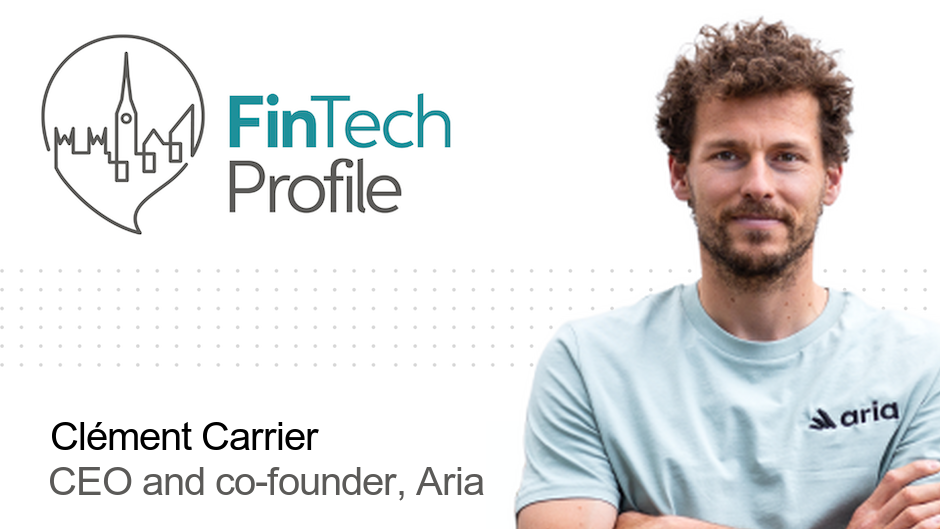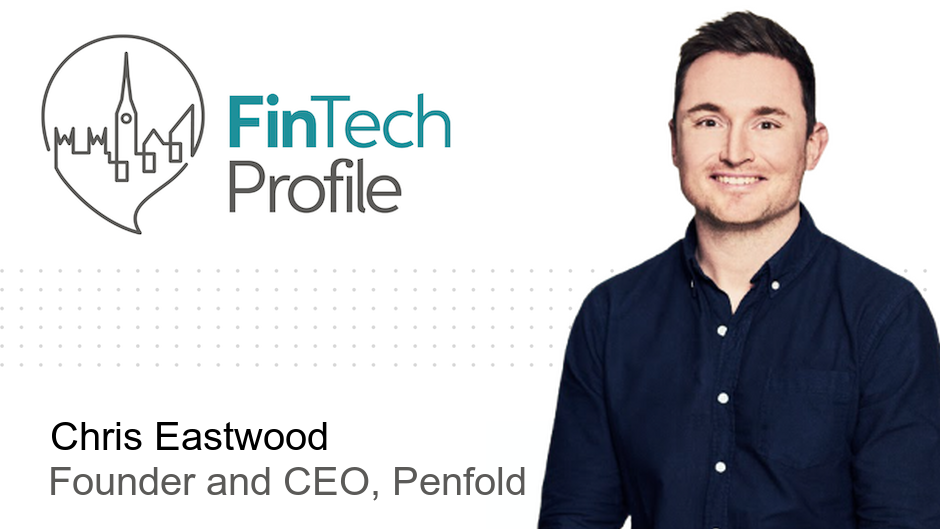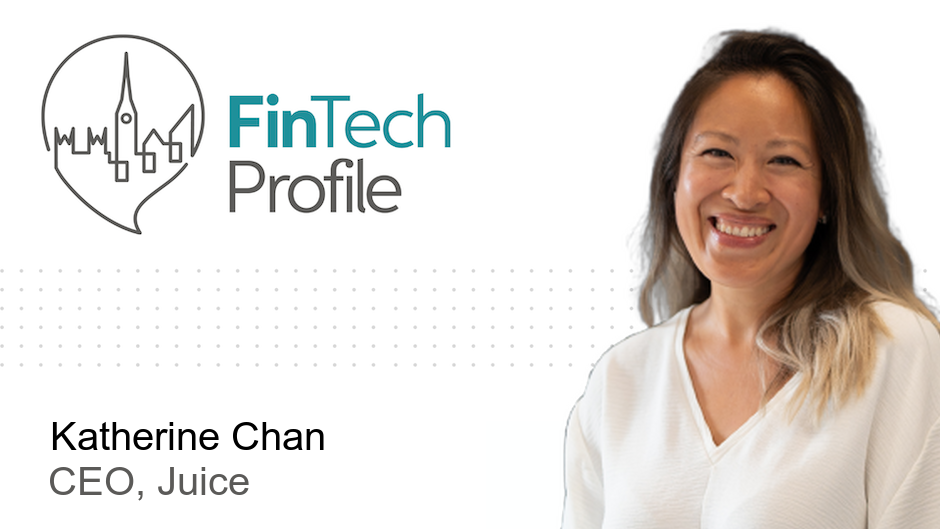Clément Carrier, CEO and co-founder, Aria
Clément Carrier shares how Aria is solving Europe's €10.5 trillion late payment crisis through embedded invoice financing infrastructure for B2B platforms.

Today we're meeting Clément, CEO and co-founder at Aria. They specialise in providing embedded invoice financing infrastructure for B2B marketplaces, ERPs, and SaaS platforms, enabling instant supplier payments whilst buyers retain standard payment terms.
Over to you Clément - my questions are in bold:
Who are you and what's your background?
My background is in data science, but I got into fintech through a roundabout path. I studied economics, econometrics, mathematics, and finance at École Normale Supérieure, then specialised in applied mathematics, machine learning, and data science at ENSAE Paris. I started my career at the Caisse des Dépôts et Consignations, where I ran the Data Lab as the technical right-hand to the Group Chief Data Officer.
At 26, I was managing teams, which taught me a lot. But after three years, I felt the pace of implementation in a large institution didn't match the urgency of the problems I saw around me. While I was freelancing on the side, I noticed a gap in the market: financial institutions had data and infrastructure, but they weren't addressing the cash flow challenges freelancers like me and small businesses faced every day. I realised I could use my background in data science to build something that actually addresses this. That led me into entrepreneurship and ultimately to co-found Aria.
What is your job title and what are your general responsibilities?
I'm the CEO and co-founder of Aria, working hand in hand with my co-founder and COO, Vincent. Our roles have evolved since we've grown to a team of over 40 people. Early on, as you can imagine, I was deep in building our product, designing risk models, and onboarding the first clients. Now my focus is slightly different.
Today, my key responsibilities are ensuring we have the capital to grow, through investor relations and by securing the debt facilities we need to scale our financing capacity. I'm heavily involved in shaping our culture through hiring and organisational design, and in ensuring we maintain our disciplined approach to risk management as we expand. I set and communicate our strategy across the company, particularly around our European expansion. And I work directly with our sales team on our biggest deals, especially as we move into new markets and verticals.
Vincent and I split the leadership to suit our natural strengths. He focuses more on operations, whilst I handle growth, capital, and product. It's a partnership that's worked well since our freelancing days.
Can you give us an overview of your business?
Large companies want to pay as late as possible to manage their working capital. Their suppliers, often SMEs and freelancers, need to get paid as early as possible to cover immediate expenses. This tension has created Europe's late payment crisis, where European businesses are waiting on €10.5 trillion in unpaid invoices at any given time. Aria solves this problem by providing embedded invoice financing infrastructure for B2B marketplaces, ERPs, and SaaS platforms. We enable instant supplier payments whilst buyers retain their standard payment terms. We operate differently from traditional lenders by purchasing invoices instead of creating debt on balance sheets.
Unlike competitors who offer generic plug-and-play solutions, our integrated API enables customised implementations across various B2B use cases. We handle the complete B2B payment workflow. B2B transactions require multiple steps before money can move: verifying entities, assessing creditworthiness, managing collections, determining insurance needs, and selecting payment methods.
Traditionally, businesses need separate providers for each. We consolidate these into one platform whilst remaining flexible enough to adapt to specific workflow requirements. We've processed over €1 billion in invoice financing since launch, with annual revenue growth exceeding 300% last year. Our UK operations have grown from £1.5 million to £50 million in annual volume between 2023 and 2024, and we're on track for £100 million this year. Our default rate remains below 0.1%, and we've reduced payment delays by an average of 42 days.
Tell us how you are funded?
We're funded by equity. We started with angel investors, then raised €15 million in our Series A in December 2023, led by 13Books Capital with participation from Ankaa Ventures and Otium Capital. Notable angels included Voodoo founder Laurent Ritter, former Apax Partners managing director Mark Ransford, and former Stripe executive Guillaume Princen, who's now at Anthropic.
What's the origin story? Why did you start the company?
Co-founding Aria was motivated by my own personal experience and grounded in a clear market need. Vincent, my co-founder, and I both worked as freelancers: he in corporate finance, I in data science. We regularly completed projects for major corporations, then faced standard payment terms of 60, 90 or sometimes 120 days. The uncertainty was challenging. You'd finish a project, only to feel unsatisfied as you worried about covering bills while waiting for payment. But we quickly realised this wasn't just a freelance problem.
SMEs across Europe hold billions in unpaid invoices, seriously damaging their creditworthiness and making it harder for them to access financing. This creates a vicious cycle, which often leads to business failure. In the UK, as many as 38 businesses close every day due to late payments. We saw an opportunity to fix this at scale by embedding the solution where B2B transactions actually happen in the platforms, marketplaces, and software that businesses already use daily. We're creating a system where larger corporations can maintain their working capital management whilst suppliers get paid faster, creating value for everyone in the ecosystem.
Who are your target customers? What's your revenue model?
Our customers are B2B platforms that want to offer financial services as part of their core value. Marketplaces like Malt, vertical SaaS companies, ERP systems, and increasingly banks are looking to modernise their SME offerings. We allow them to provide instant payment to suppliers whilst buyers retain their preferred payment terms. We earn a fee on the invoices we finance, which aligns our success directly with our platform partners' growth. The more transactions they process, the more we finance.
For example, UrbanChain achieved 10x revenue growth after integrating our financing. Malt can now offer freelancers payment in six hours instead of months. Job&Talent uses us to ensure temp workers get paid immediately, whilst their enterprise clients manage cash flow effectively. That way, we transcend our status as simply a vendor to become core to our partners' value proposition.
If you had a magic wand, what one thing would you change in the banking and/or FinTech sector?
If I had a magic wand, I would remove the friction that makes banking onboarding and daily platform use so painful. Today, customers face slow processes, repetitive checks, and fragmented interfaces. Everything takes longer than it should.
With one change, I'd create a seamless, real-time onboarding and platform experience—no duplicate steps, no switching tools, no long processing times. Just fast, simple, end-to-end financial journeys that work.
What is your message for the larger players in the Financial Services marketplace?
Traditional banks and disruptive fintech companies have a real opportunity to work more closely together in a mutually beneficial way. Banks may suffer from slow-moving technical infrastructure, but they can deploy massive amounts of cash at a price fintechs can't beat. If you plug fintech's technical infrastructure into a bank's financing capabilities, you get the best of both worlds to create an excellent product for the end customer. There's more reason to pull together than push apart.
Where do you get your Financial Services/FinTech industry news from?
I read Fintech Takes and Fintech Brain Food regularly. Both provide analysis that goes beyond the headlines. For European perspectives, I follow Sifted for the most reliable insights into the European startup ecosystem. I'm also a big fan of podcasts, mainly listening to Cambrian Fintech with Rex Salisbury during my long trail running sessions. I love how he gets into the weeds with entrepreneurs about the operational realities of building a fintech company. That said, the most valuable insights come from direct customer feedback and watching competitor movements in the market.
Can you list 3 people you rate from the FinTech and/or Financial Services sector that we should be following on LinkedIn, and why?
Matt Brown, who has an excellent Substack I'd highly recommend. One of my favourite posts was: "B2B payments aren't payments, they're workflows."
I also highly rate Arthur Waller and Louis Chatriot, both two-time fintech founders and exceptional entrepreneurs.
What FinTech services (and/or apps) do you personally use?
I use Revolut's banking services, Interactive Broker for investing in the UK, and Pennylane's accounting software.
What's the best new FinTech product or service you've seen recently?
Pennylane is a helpful software product that lets founders focus on running their business while keeping their accountants in the loop for bookkeeping and tax filings.
Finally, let's talk predictions. What trends do you think are going to define the next few years in the FinTech sector?
Two trends will dominate:
First, embedded finance will shift from a nice-to-have to an essential feature. Every B2B platform will need to offer financial services to stay competitive. McKinsey projects that by 2030, embedded finance could account for 20-25% of SME lending revenues in Europe. Platforms that don't adapt will lose to those that do.
Second, AI will transform risk assessment and fraud detection, but not in the way most people think. It won't replace traditional credit scoring for lending decisions because the risks are too high when you're exposed to 100% losses on bad loans. Instead, AI will excel at pattern recognition for fraud, automating operational workflows and personalising financial products at scale. The winners will be those who use AI to enhance human decision-making, not replace it.
Thank you Clément. Connect with Clément on LinkedIn and read more about Aria at their website.




